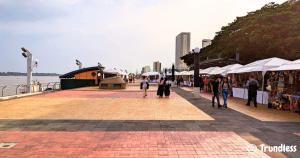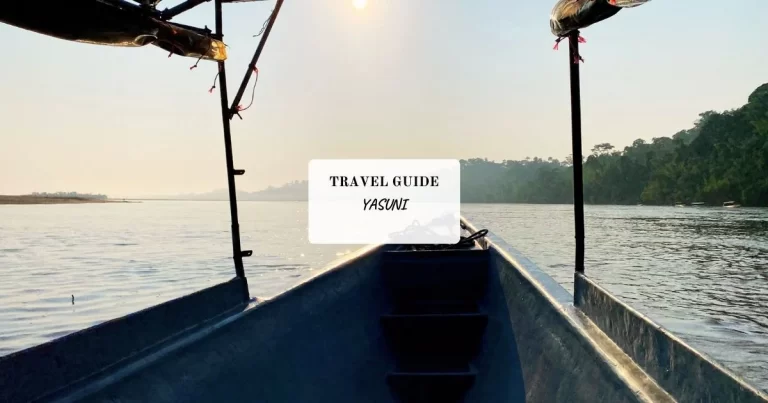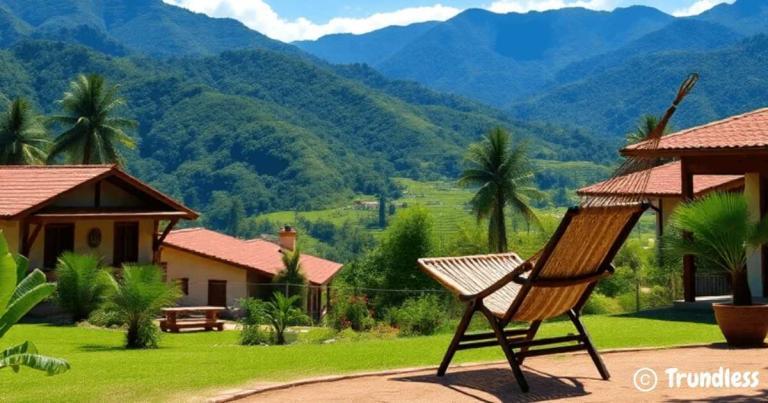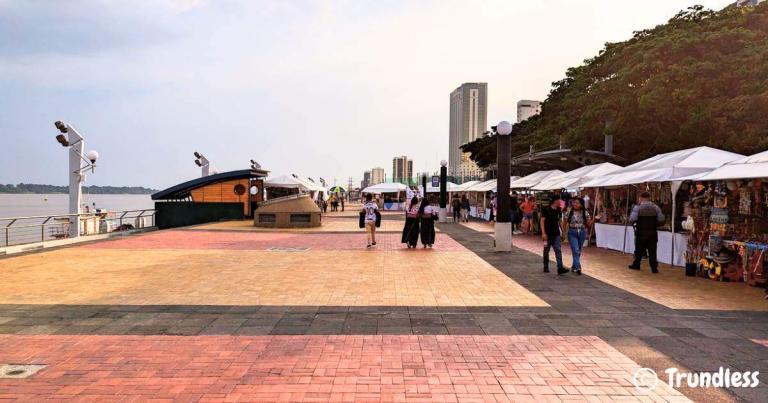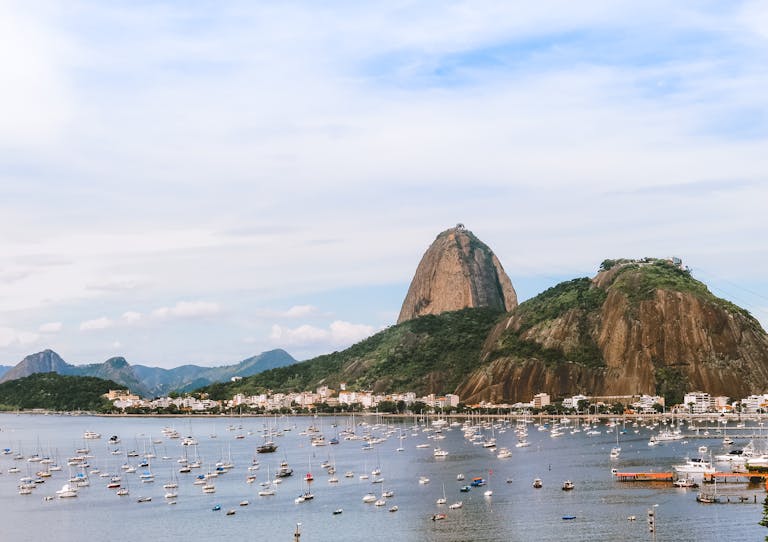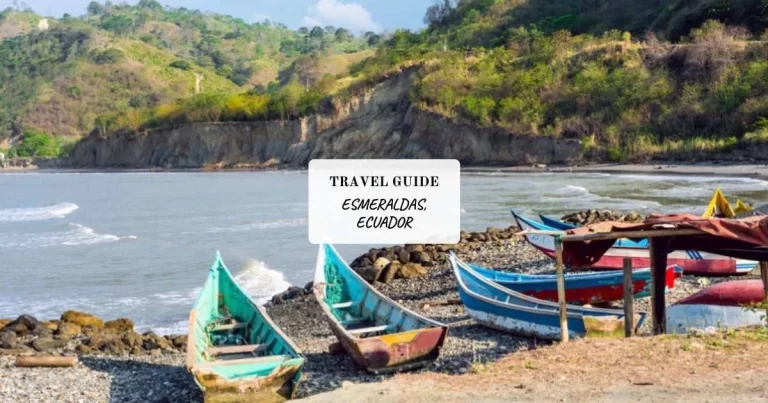What are the requirements to obtain permanent residence in Ecuador?
Ecuador is rapidly becoming a popular choice for expatriates and retirees. Located between the Andes mountains and the Pacific Ocean, this vibrant country offers a rich blend of culture, breathtaking landscapes, and a pleasant climate. The appeal of Ecuador tourism stretches from the lively streets of Quito, to the awe-inspiring beauty of the Galapagos Islands.
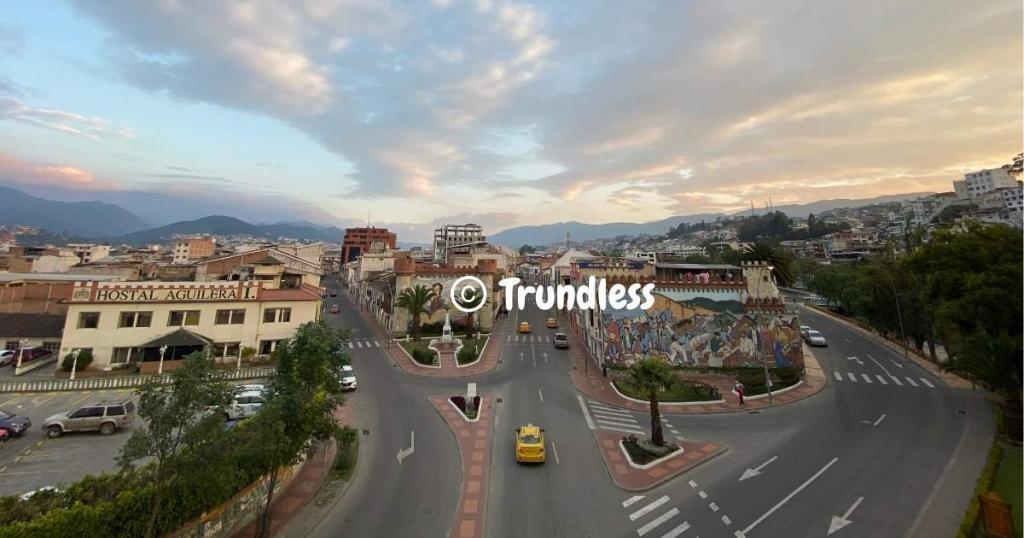
Knowing what are the requirements to obtain permanent residence in Ecuador is crucial for ensuring a smooth transition to life in this enchanting place. Permanent residency not only brings stability but also opens up numerous opportunities for exploration and interaction with local communities.
In this guide, you’ll find:
- The step-by-step Ecuador residency process
- Important financial and documentation requirements
- Insights into maintaining your residency status
- Tips for living your best life in Ecuador
With this knowledge, you’re well on your way to embracing all that Ecuador has to offer. Whether you’re dreaming of retiring by the coast or immersing yourself in its rich history, navigating the residency process will empower you to create lasting memories in this remarkable country.
Exploring Ecuador: A Culinary Journey
As you settle into your new life in Ecuador, don’t miss out on exploring its diverse culinary landscape. The country is known for its unique dishes, each reflecting its rich cultural heritage. For an immersive experience, here are some top foods to try in Ecuador that will tantalize your taste buds.
Navigating Finances: Banking and ATMs in Quito
Understanding the financial landscape is crucial when moving to a new country. This includes knowing how to manage your finances effectively while living in Quito. Our comprehensive guide on banking and ATMs in Quito provides essential information about major banks, fees, services, and safety tips for travelers.
Embracing Life in Quito
Living in Quito Ecuador opens up a world of experiences. From historic sites and scenic views to vibrant nightlife and local cuisine, there’s so much to explore. Check out our ultimate guide on top must-do activities in Quito for some inspiration.
Discovering Cuenca: A Cultural Gem
If you’re planning a visit to Cuenca, we have just the thing for you! Our perfect itinerary for first-time visitors will help you make the most of your 3 days in Cuenca, blending culture, nature, and local flavors in this UNESCO World Heritage City.
With these insights and resources at your disposal, you’re now better equipped to navigate your new life in Ecuador and fully embrace all that this beautiful country has to offer.
1. Understanding Temporary Residency
Temporary ecuadorian residency provides a pathway for expatriates and retirees to begin their journey in this beautiful country.
Definition of Temporary Residency in Ecuador:
The short-term residency visa allows foreign nationals to reside in Ecuador for a specific period, typically up to two years, after which they can apply for a permanent visa. This visa is essential for those looking to establish themselves before pursuing residency visa.
Duration and Conditions for Maintaining a Temporary Visa:
A short-term residency visa is usually granted for one or two years in Ecuador. To maintain this visa, holders must comply with specific conditions, including:
- Regularly renewing the visa as required.
- Remaining in the country for at least 180 days each year.
Importance of Continuous Residence Prior to Applying for Permanent Residency:
Continuous residence is crucial for those wishing to transition from temporary to permanent status, especially when applying for a permanent visa. A minimum of 21 months spent in Ecuador on a Temporary Visa is necessary before applying for a long term visa. This time allows individuals to acclimate to the culture and lifestyle, ensuring a smoother integration into Ecuadorian society.
Understanding these aspects of temporary residency lays the groundwork for your next steps towards obtaining a long term visa in Ecuador. While you’re transitioning, you might want to explore the rich culture and stunning landscapes that Ecuador has to offer. For instance, spending a day in Quito could be an enriching experience filled with adventure and cultural immersion.
2. Requirements for Holding a Temporary Visa
Understanding the travel restrictions that come with a Temporary Visa in Ecuador is essential for maintaining your residency status. These are the essential elements to bear in mind:
- Travel Conditions: Temporary Visa holders can travel outside of Ecuador, but it’s crucial to adhere to specific regulations. Engaging in extended travel may lead to complications regarding your residency application.
- Maximum Allowable Time: The maximum time a Temporary Visa holder can remain outside Ecuador is generally 180 days within a calendar year. Exceeding this limit could jeopardize your eligibility for long-term residency or even result in losing your visa status.
Maintaining awareness of these guidelines ensures compliance and helps you enjoy your travels without risking your residency plans. Understanding these requirements will pave the way for a smoother transition when you’re ready to apply for a permanent residency visa.
2.1 What types of Temporary Visas are available?
Ecuador offers various types of visas for those looking to stay in Ecuador beyond the standard tourist visa. Temporary resident options include the retirement visa, investor visa, rentista visa, professionial visa and digital nomad visa. Each visa option has specific visa requirements and visa fees.
To get a residency visa, applicants must complete a visa application form and need to show proof of income or investments. For example, the investment visa requires a certificate of deposit or real estate visa purchase. The pensioner visa is popular for those who want to retire in Ecuador, requiring a minimum monthly income of 3 times the minimum wage in Ecuador.
It’s important to note that if you leave Ecuador for more than 90 days, your visa will be canceled. After two to three years of residency, you may be eligible for a permanent residence visa or even pursue residency and citizenship. Remember, you can enter Ecuador initially on a special tourist visa if you plan to stay in the country for more than 90 days while arranging your long-term visa and residency.
3. Financial Requirements for Permanent Residency
Understanding the financial requirements is a crucial step in the journey toward a residency visa in Ecuador. Here’s what you need to know:
1. Income Verification Process
Applicants must demonstrate legal income that meets Ecuador’s standards. This income can come from various sources, such as pensions, investments, or employment.
2. Minimum Income Thresholds
The specific threshold varies depending on the type of residency visa you hold. For most applicants, a monthly income of at least $700-$1000 is required. If you are applying with dependents, this amount increases incrementally.
3. Acceptable Documentation
To prove your income, several forms of documentation are acceptable:
- Bank Statements: These should reflect consistent deposits that align with the required income threshold. Ecuadorian bank account statements can be acceptable too if you open a local bank account in the period.
- Tax Statements: Documents showing annual earnings can also serve as proof but may require additional context regarding regularity and amounts.
Gathering these documents early in the process can streamline your application and ensure compliance with the requirements to obtain permanent residence in Ecuador.
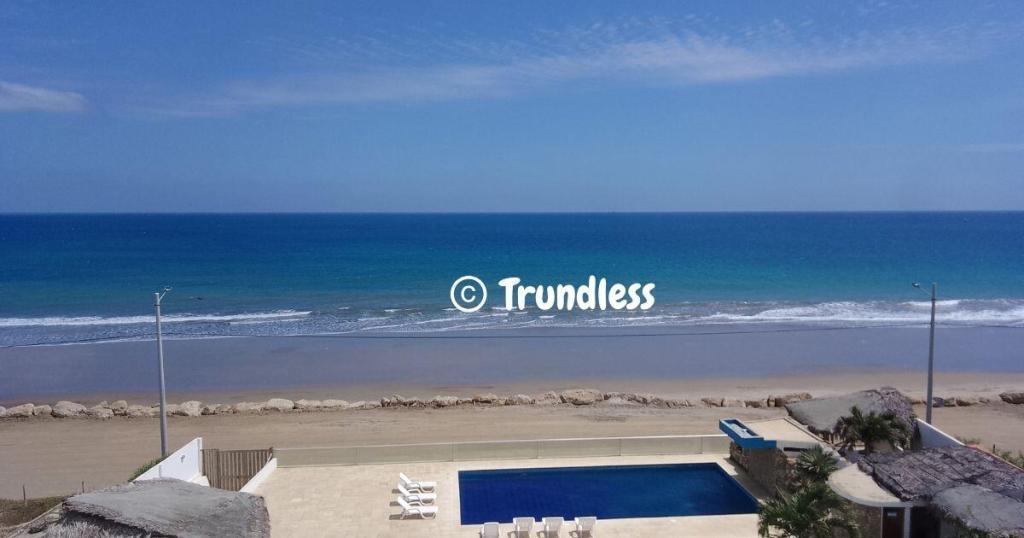
4. Documentation and Proof of Income
Gathering the right documentation is essential when applying for long-term ecuadorian residency. Demonstrating your financial situation involves presenting various types of documents to prove stability. Here’s what you would need:
- Bank Statements: Recent account statements showing consistent income over a specified period are crucial. Typically, three to six months of statements are requested.
- Tax Returns: Providing tax documentation, such as annual tax returns, can further support your financial claims.
- Employment Verification Letters: If you’re employed, a letter from your employer confirming your position and salary can be beneficial.
In addition to individual accounts, joint accounts play an important role in meeting income requirements. If you share a joint account with a partner or spouse, the combined income can be considered. This is particularly useful for couples applying together, as it allows them to pool their financial resources.
Maintaining clear and organized documentation not only reinforces your application but also reflects your commitment to establishing a stable life in Ecuador. Understanding these requirements will pave the way for a smoother transition into the vibrant culture of this beautiful country.
5. Background Checks and Health Insurance
Obtaining permanent residency in Ecuador involves fulfilling specific requirements, including background checks and health insurance.
Background Checks
- Applicants must undergo a background check to demonstrate their suitability for residency.
- This process includes obtaining an Ecuadorian police report, which verifies the absence of any criminal record within the country.
- Additionally, background checks from other countries where the applicant has resided are often required. These documents help ensure that applicants meet the moral character standards set by Ecuadorian authorities.
Health Insurance
- Valid health insurance is essential when applying for long-term residency.
- The requirement ensures that expatriates have access to medical care while residing in Ecuador, alleviating potential burdens on the local healthcare system.
- Coverage should be comprehensive, typically encompassing hospital stays, outpatient services, and emergency treatments.
Navigating these requirements can seem daunting, yet they play a crucial role in establishing a secure foundation for life in Ecuador. Understanding these elements will enhance your readiness for the next steps in your residency journey.
6. Application Process for Permanent Residency
Navigating the Ecuador residency visa application process can seem daunting, but a clear step-by-step approach simplifies it significantly. Here’s how to tackle the residency process:
- Gather Required Documents: Start by collecting all necessary paperwork, including proof of income, background checks, and health insurance documentation.
- Submit Application at Local Immigration Office: Present your completed application along with the gathered documents to the nearest immigration office (Ministerio de Relaciones Exteriores y Movilidad Humana).
- Pay Processing Fees: Be prepared to pay the associated fees when you apply for a permanent visa. Keep receipts as proof of payment.
- Attend an Interview (if required): Some applicants may need to attend an interview to discuss their application further.
- Await Approval: Processing times can vary. Typically, it can take several weeks to a few months for a decision on your application.
Key Timelines and Deadlines
- Initial Submission: It is essential to submit your application while your short-term residency is still valid.
- Follow-Up: Regularly check in on the status of your application through official channels; staying informed can help alleviate concerns about delays.
Being organized and proactive during this process ensures you meet all requirements and timelines effectively, paving the way for a smooth transition to long-term residency in Ecuador.
Once you secure your residency, you might want to explore more about the country’s vibrant culture and history. For instance, Quito, Ecuador’s capital, is home to some of the best museums that showcase Pre Columbian artifacts and the rich history of Ecuador.
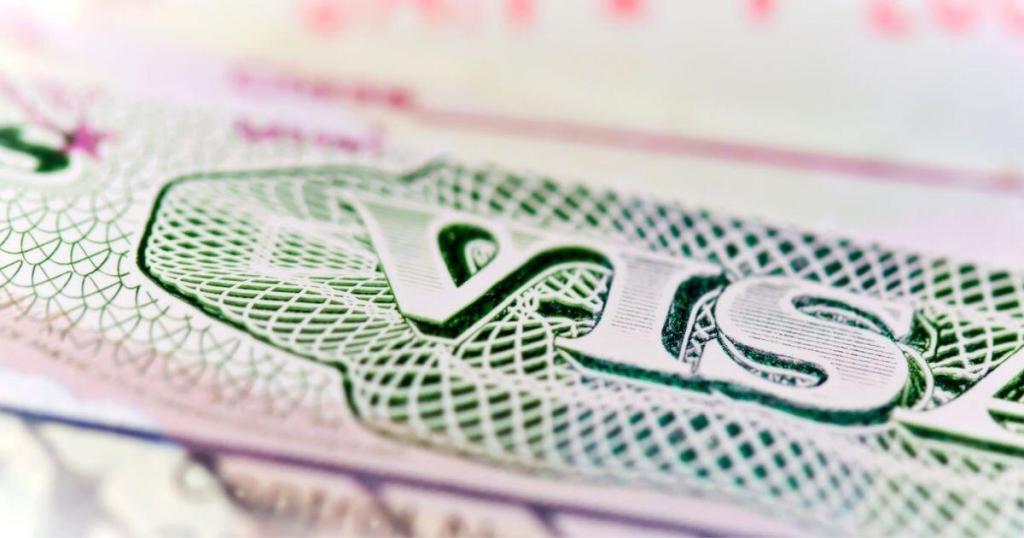
7. Preparing Your Application Documents
When starting the cedula application process, it’s crucial to prepare your application documents carefully. A well-organized submission can make your journey to permanent ecuadorian residency much smoother. Here’s a detailed list of the documents you’ll need to apply for a permanent visa:
- Valid passport: Must be current and not nearing expiration.
- Temporary residency visa: Proof of current legal status in Ecuador.
- Birth certificate: An official copy is often needed to verify identity. Sometimes it may not be requested, but it’s good to have it on hand just in case.
- Marriage certificate (if applicable): Essential for applicants with spouses.
- Police clearance certificate: Obtained from both Ecuador and your home country, verifying no criminal record.
- Medical certificate Issued by an authorized health professional in Ecuador for the issuance of a professional visa.
To make the process of preparing your documents more efficient, here are some tips you can follow:
- Create a checklist: Jot down each document and check them off as you gather them. This helps avoid missing any crucial papers.
- Organize by category: Group documents into sections such as identification, legal status, and financial proof. Use labeled folders for easy access.
- Make copies: Keep both physical and digital copies of all documents for your records.
Being detail-oriented will help you as you go through the important steps toward getting long term ecuadorian residency. If you’re thinking about traveling to Ecuador for this process, it might be useful to check out some best airlines for flights to Ecuador which offer valuable tips and insights on choosing the right carrier.
8. Costs Associated with Permanent Residence in Ecuador
Acquiring permanent residency in Ecuador involves various costs that potential expatriates should budget for. Here’s a breakdown of the primary expenses:
1. Notary Fees
These fees can vary widely depending on the complexity of the documents you need to notarize. Expect to pay anywhere from $25 to $60 per document.
2. Government Fees
The application for permanent residency typically incurs a government fee, which may range from $100 to $500, depending on the specific visa category you are applying for.
In addition to these primary costs, there are other financial considerations involved in preparing your application:
- Document Preparation: Gathering and organizing necessary documents can lead to additional expenses, especially if you require translations or professional services to ensure compliance with Ecuadorian regulations.
- Health Insurance: It’s essential to have valid health insurance during your application process. Prices vary based on coverage options but budgeting around $100 to $200 monthly is advisable.
Understanding these costs help, in planning your move effectively. Being financially prepared can ease the transition and set the stage for a successful residency experience in this beautiful country.
9. Travel Restrictions After Getting Permanent Residency
Getting long-term residency in Ecuador opens up many opportunities, but it also comes with certain travel restrictions. It’s important to understand these limitations if you’re considering living in this vibrant country.
Travel Rules During the First Two Years
After receiving the Permanent Residency Visa, holders must follow specific travel rules during the first two years:
- Maximum absence from Ecuador: 180 days in any single year.
- Frequent travelers should closely monitor their time outside the country.
During this period, it’s crucial to have the right travel essentials to ensure a stress-free trip whenever you do leave the country.
Looser Restrictions in Subsequent Years
Once the initial period has passed, the restrictions loosen considerably:
- No formal limitations on travel duration.
- Permanent residents can return to Ecuador without concerns about losing their status.
Consequences of Breaking Travel Restrictions
Failing to follow these travel restrictions can have serious consequences:
- Exceeding the allowed absence may lead to loss of residency status.
- The Ecuadorian government regularly reviews residency statuses, making it crucial to maintain compliance.
Understanding travel restrictions for residency holders is vital for a smooth transition into your new life in Ecuador. Being aware of these requirements helps ensure that your residency remains intact while you explore all that this beautiful country has to offer.
While exploring, it’s important to stay informed about safety and security. Here are some tips for a secure journey in Ecuador, helping you avoid potential risks and enjoy your travels to the fullest.
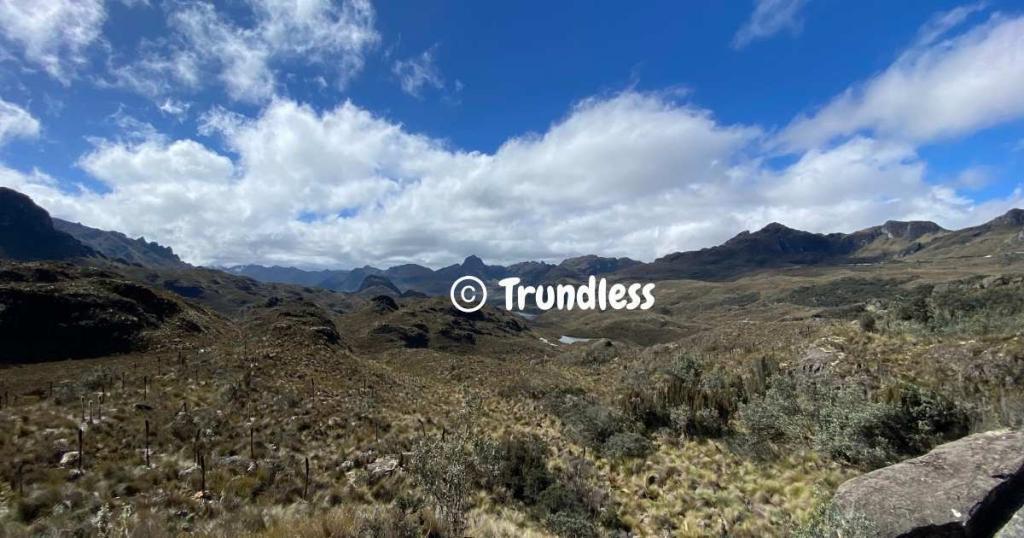
10. Path to Citizenship in Ecuador
Acquiring citizenship in Ecuador opens the door to an enriched lifestyle filled with unique opportunities. After obtaining permanent residency, applicants can pursue citizenship eligibility under specific criteria.
Criteria for Applying for Citizenship
- Timeframe: Permanent residents in Ecuador, must hold their status for a minimum of three years before applying for citizenship.
- Conditions: Applicants need to demonstrate integration into Ecuadorian society, which includes:
- Language Proficiency: Basic knowledge of Spanish is required.
- Cultural Understanding: Familiarity with local customs and traditions.
- Legal Standing: A clean criminal record in Ecuador and any previous countries of residence.
Benefits of Acquiring Citizenship
Attaining citizenship offers several advantages:
- Voting Rights: Citizens of Ecuador can participate in local and national elections, influencing the democratic process.
- Travel Freedom: An Ecuadorian passport allows easier travel to various countries across Latin America and beyond.
- Access to Services: Citizens enjoy full access to public services, including education and healthcare.
Exploring the beautiful Galapagos Islands or other stunning Ecuador islands becomes even more rewarding as a citizen. Embracing this path not only solidifies your residence but also enhances your connection to this vibrant country.
Seeking Assistance During the Process
Navigating the path to obtaining a resident visa can be complex but rewarding. obtaining a resident visa can be complex but rewarding. Many applicants find it beneficial to enlist professional assistance.
Importance of Honest Professional Assistance
- Beware of Scam Immigration Agencies and Lawyers: My advice is to shop around, compare prices, and avoid committing to one agency or lawyer too quickly; otherwise, you risk getting scammed or losing a lot of money. Unfortunately, if you are an expat, there will always be people or companies ready to take as much money from you as possible.
- From my experience, I had a very bad encounter with a lawyer named Joseph Guznay. Not only did he keep changing the price for the services I needed, but he also seemed greedy, trying to extract as much money from me as possible. Another agency, Ecuassist, quoted me exorbitant fees. Most visas have a set cost, and these individuals and companies take advantage of expats who aren’t aware of the real prices in Ecuador. After doing my own research, I discovered that the actual cost for my visa was about five times cheaper. I found an honest Ecuadorian lawyer on-site in Ecuador, and her fee was only $100 for everything— a huge reduction compared to other agencies that overcharge. If you’re considering researching agencies from your home, be cautious. I flew to Ecuador with all my paperwork and found a lawyer on-site, which saved me a lot of money. Whatever agency you choose, make sure they specialize in:
- Document Preparation: Ensuring all necessary paperwork is in order.
- Guidance Through Legal Requirements: Helping applicants understand the specifics of what is needed for their situation.
- Translation Services: Providing accurate translations of documents that may be required for submission.
Working with honest professionals can significantly streamline your journey to obtaining a cedula in Ecuador. Their expert knowledge of the constantly evolving immigration laws and requirements ensures that you stay informed and compliant. Additionally, they can help expedite the often time-consuming bureaucratic processes, reducing your stress and allowing you to focus on settling into your new life. By choosing to seek assistance, you enhance your chances of success while ensuring a smoother transition into living in Ecuador.
Conclusion: Embracing Life as a Permanent Resident in Ecuador
Navigating the path to permanent residence in Ecuador opens doors to vibrant experiences and a fulfilling lifestyle. Here are some key benefits awaiting those who successfully complete the residency process:
- Cultural Immersion: Enjoy the rich tapestry of Ecuadorian culture, from its festivals to its diverse culinary delights.
- Affordable Living: Experience a lower cost of living in Ecuador, compared to many Western countries, allowing for a comfortable lifestyle.
- Natural Beauty: Ecuador gives you access to stunning landscapes, from the Andes mountains to the Amazon rainforest and beautiful coastlines. Not to mention the incredible adventure opportunities in places like the Galápagos Islands, known for their stunning biodiversity and unique wildlife.
Understanding what are the requirements to obtain long-term residency in Ecuador is essential for this rewarding transition. Embrace the opportunities that life in Ecuador offers, where adventure and tranquility coexist, creating an enriching experience for expatriates and retirees alike.

